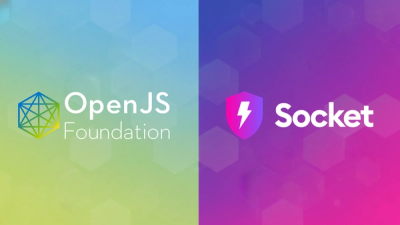
Research
SANDWORM_MODE: Shai-Hulud-Style npm Worm Hijacks CI Workflows and Poisons AI Toolchains
An emerging npm supply chain attack that infects repos, steals CI secrets, and targets developer AI toolchains for further compromise.
Only call a function once.
var once = require('once')
function load (file, cb) {
cb = once(cb)
loader.load('file')
loader.once('load', cb)
loader.once('error', cb)
}
Or add to the Function.prototype in a responsible way:
// only has to be done once
require('once').proto()
function load (file, cb) {
cb = cb.once()
loader.load('file')
loader.once('load', cb)
loader.once('error', cb)
}
Ironically, the prototype feature makes this module twice as complicated as necessary.
To check whether you function has been called, use fn.called. Once the
function is called for the first time the return value of the original
function is saved in fn.value and subsequent calls will continue to
return this value.
var once = require('once')
function load (cb) {
cb = once(cb)
var stream = createStream()
stream.once('data', cb)
stream.once('end', function () {
if (!cb.called) cb(new Error('not found'))
})
}
once.strict(func)Throw an error if the function is called twice.
Some functions are expected to be called only once. Using once for them would
potentially hide logical errors.
In the example below, the greet function has to call the callback only once:
function greet (name, cb) {
// return is missing from the if statement
// when no name is passed, the callback is called twice
if (!name) cb('Hello anonymous')
cb('Hello ' + name)
}
function log (msg) {
console.log(msg)
}
// this will print 'Hello anonymous' but the logical error will be missed
greet(null, once(msg))
// once.strict will print 'Hello anonymous' and throw an error when the callback will be called the second time
greet(null, once.strict(msg))
This is a function from the Lodash library that ensures a given function can only be called once. It is similar to 'once' but comes as part of the larger Lodash utility library, which includes a wide range of functions for different purposes.
Memoizee is a library for memoizing functions, which can also be used to ensure a function is only called once by caching the result of the first call. It is more complex and feature-rich than 'once', offering fine-grained control over cache management and function memoization.
FAQs
Run a function exactly one time
The npm package once receives a total of 41,011,923 weekly downloads. As such, once popularity was classified as popular.
We found that once demonstrated a not healthy version release cadence and project activity because the last version was released a year ago. It has 1 open source maintainer collaborating on the project.
Did you know?

Socket for GitHub automatically highlights issues in each pull request and monitors the health of all your open source dependencies. Discover the contents of your packages and block harmful activity before you install or update your dependencies.

Research
An emerging npm supply chain attack that infects repos, steals CI secrets, and targets developer AI toolchains for further compromise.

Company News
Socket is proud to join the OpenJS Foundation as a Silver Member, deepening our commitment to the long-term health and security of the JavaScript ecosystem.

Security News
npm now links to Socket's security analysis on every package page. Here's what you'll find when you click through.